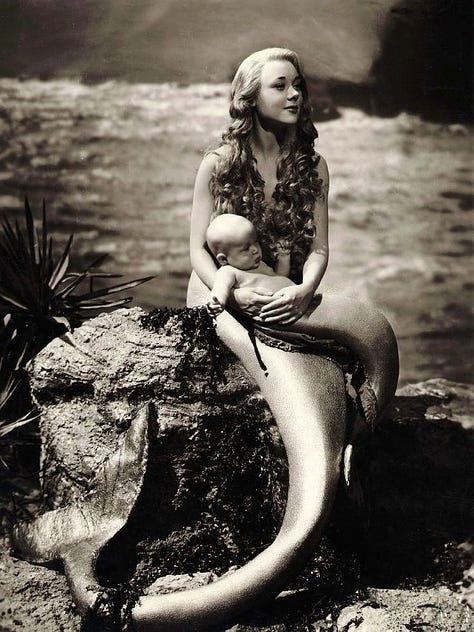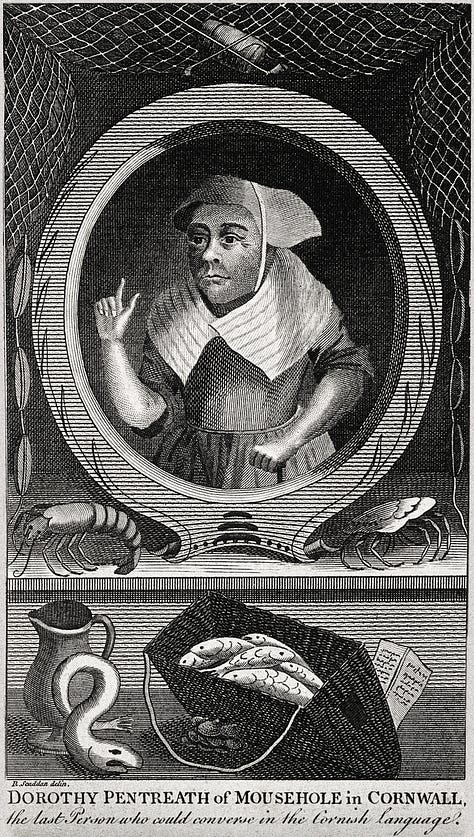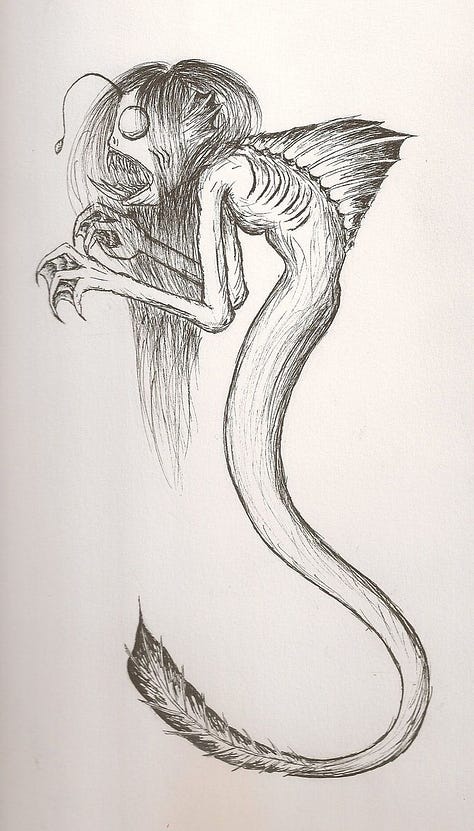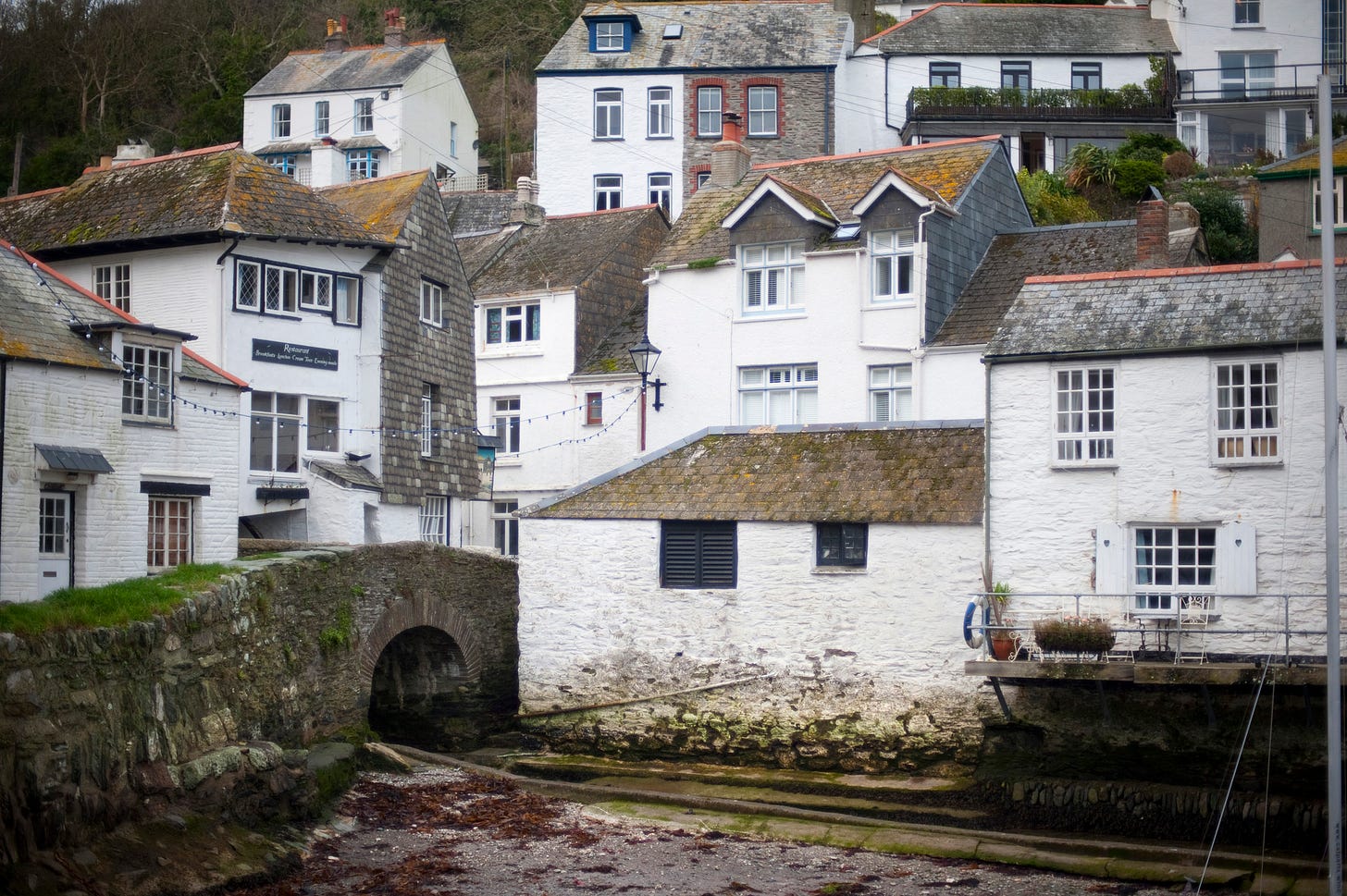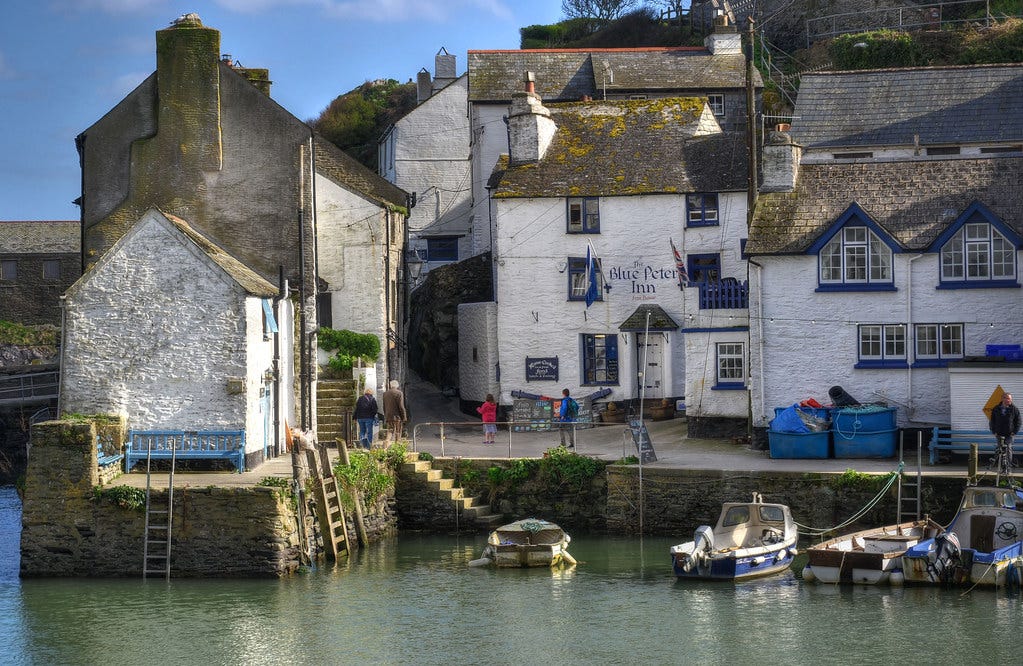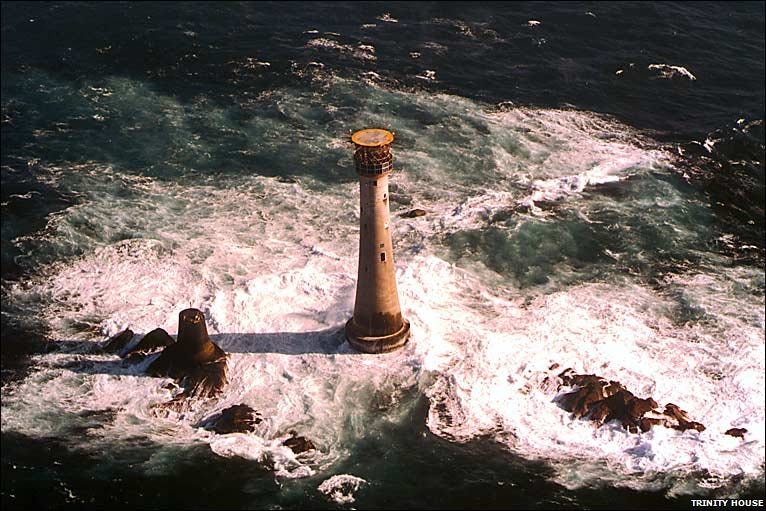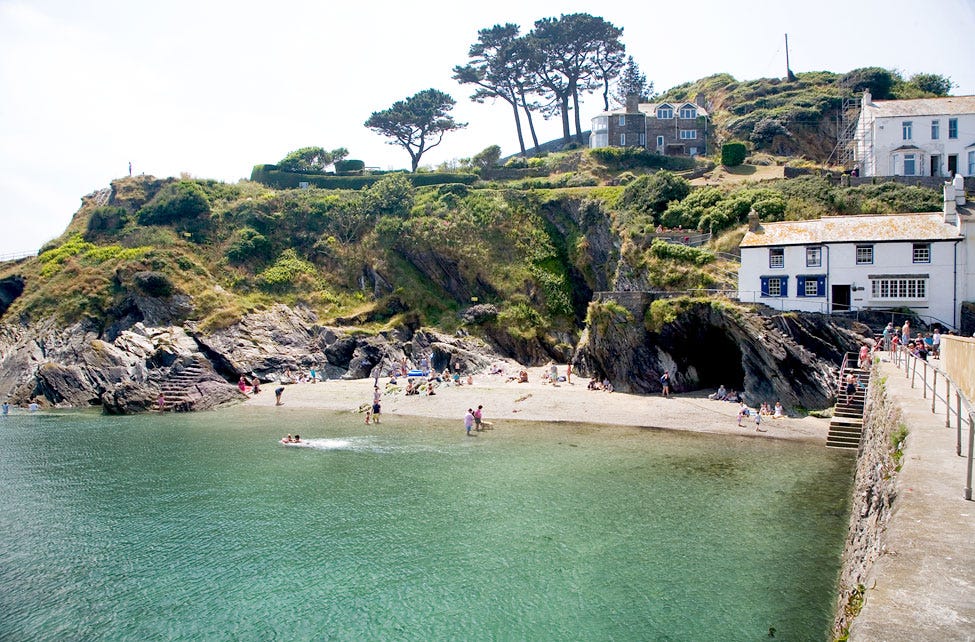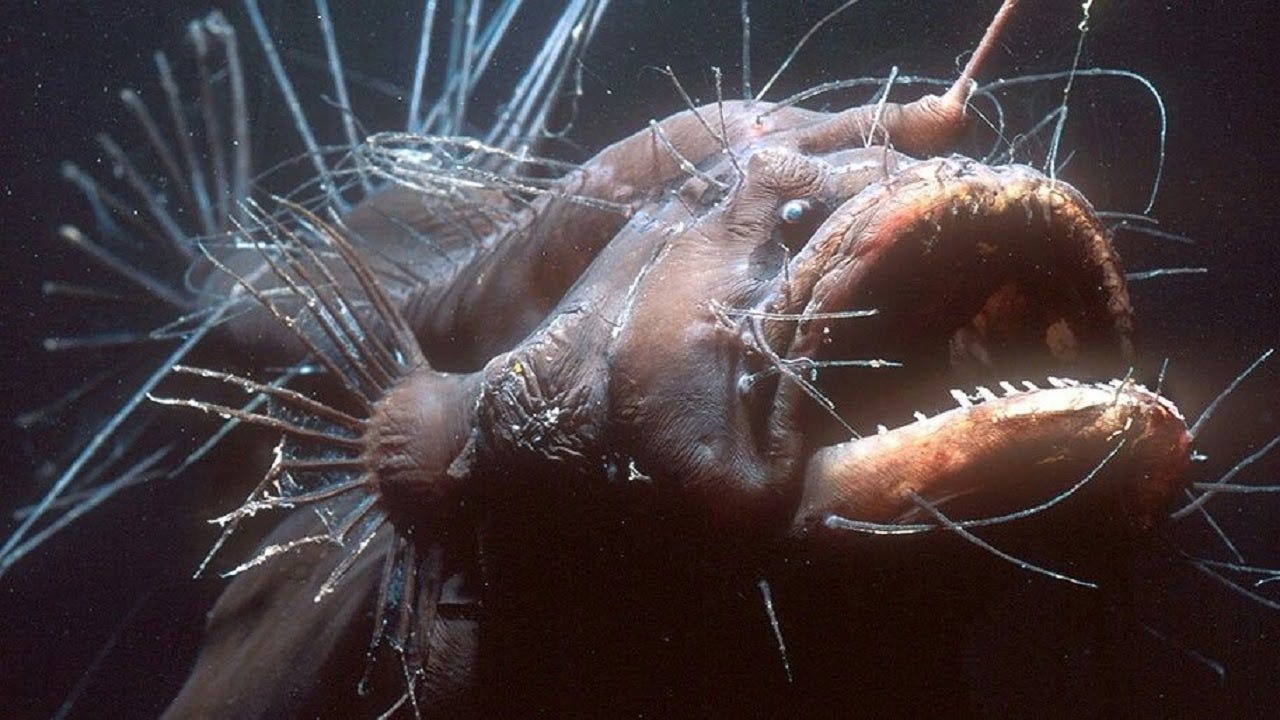The Eddystone Brides
An adventure for PCs based in London, possibly working for the Phantasmological Society.
A trio of decapitations.
Backstage at the Shaftesbury Theatre, London. Blanche Trelawney, a promising young soprano, found headless in her dressing room, minutes before she was due to take the stage as Mabel in The Pirates of Penzance.
The rest of the cast despised her, except the guy who plays the Major General, who sent her roses every day and is seriously contemplating leaving his wife. An idol on her dressing table. Like a prehistoric Venus figure, but with too many legs. She told the director it was a good luck charm from home.
Mary Booth, née Trelawney. 22, blonde. Wife to Charles Booth, a prominent elderly Tory MP who currently happens to be the Parliamentary Secretary to the Board of Agriculture and Fisheries.
Hosted spectacular dinner parties. Loathed by her servants. Another Venus idol in the bedroom of her Chelsea apartment. Letters from a secret admirer on her bedside table, inviting her to a rendezvous in Hyde Park, where her corpse was found.
Rose Teague. Sculptor. Quiet. Kept to herself. Frequented the Billingsgate fish market, where she liked to fondle the monkfish and the cod. Had a way of provoking bloody fights among the porters for her attention. Head discovered floating in the Thames.
Room in an East End women’s boarding house full of unsettling clay shapes, Venus figures and heads with bulging mouths. And fish of course.
All killed within days of each other. Not obviously in contact but Blanche turns out to be Mary’s cousin. All three women are from the isolated fishing village of Polperro, on the Cornish coast. This wasn’t a secret, they mentioned it to their friends.
(Or maybe you get there just in time to save Rose. Do try not to fall in love with her though.)
A city of glass towers on the banks of the Channel River, in the late Pleistocene. We know it now as Ys.
Founded by Atlanteans. Grown from their crystal seeds as a place to trade with the mammoth riders of Doggerland and the frost giants of the Fennoscandian ice sheet. Ruled by evil queens. Sank when the ice caps melted. Most people left. Some stayed.
There’s a fishing ground to the southwest of the Eddystone Light which is reserved by ancient custom for the men of Polperro. Fishermen from other villages avoid it like the plague. They say you can hear bells beneath the waves.
There’s a song. You’ll hear it from the church choir, and in the pub.
“Me father was the keeper of the Eddystone Light
And he slept with a mermaid one fine night
From this union there came three
A porpoise and a porgy and the other was me!”
Sometimes, a fisherman from Polperro is lost at sea. Nine months later, on the beach at the mouth of the harbour by Willy Wilcox’s cave, a baby is found. The baby is in all ways normal, except it might have webbed feet, or a mouth that’s slightly too large. And they tend to be blonde.
It’s adopted by the fisherman’s widow. You’re not allowed to throw it back.
And there are fogous below the houses by the harbour, cellars full of salted halibut and moon pools leading to the sea. There are men with three children whose mother you never see. Nobody judges them. Everyone seems to know what’s going on.
The fishwives are translucent. Gaping maws full of needle teeth. Sometimes they’ll be hauled up by accident in the nets, to everyone’s rough amusement. Or they’ll come knocking on the hulls of the ship. Taking what they want.
The women of Polperro are famously lovely.
The men tend to stay in the town. The women leave.
Dolbadarn Castle. On the shores of Llyn Peris. In Wales. In real life just a ruined tower but we’re going to say it’s a bit bigger than that.
Mark Ashton grew up there. His father, Sir Thomas Ashton, inherited the Dinorwic slate quarry on the other side of the lake. His mother died when he was young. His stepmother, Viviane Trelawney, was from Polperro.
He lived in fear of her. Sprawling parties on the castle lawn. Her friends exotic, ugly, disrespectful of personal space. His father a broken, shabby thing, fetching them wine. Cellars blocked off as her private rooms.
Townsfolk of Llanberis, scandalised, complaining about the noise and the disappearing livestock. Strange experiments in towers at midnight. Flickering lights over the hills.
One day the miners found a cave. Viviane oversaw the dig. She’d been studying old manuscripts, the Red Book of Hergest and the secret alchemical notes of Llewellyn the Great. She told them where to look.
A tomb, hewn into the grey slate. A wizened knight in iridescent armour, old beyond measure, clutching a sword. He moaned once when they found him, and lay still. Sir Bedivere, the inscription said.
She brought the sword home. Mark eavesdropped as she explained to her butler, Mr. Baddaden, an acromegalic titan with patches of scaly red skin, what it was. That night he stole the sword, cut off her head and ran away.
He believes he is the one true king of England. He is going to kill all the women of Polperro, and save the world.
The sword’s hilt is two chimaeras, breathing fire. Its black blade shines like oil, and cuts anything. It moves like a gyroscope, weighted, aiming at necks.
King Arthur had access to a stash of Hyperborean weapons.
Dolbadarn Castle is still there, crumbling, on the shores of Llyn Peris. It’s full of witch’s treasure and wrecked experiments. A dungeon, basically. Mr. Badadden manages the place, and drives off looters. You could go there after this.
Polperro’s hard to get to. No roads in 192X. You need to get in by the coastal track or the sea.
The townsfolk are preparing for St. Tristan’s Day. A midwinter festival where the handsomest fisherman in town is crowned King of the Sea. Mummers in blackface, comedy transvestites, hobby horses snapping at you and trying to catch women under their cloaks.
The children of the town, in creepy masks, act out a story.
Once upon a time there was a queen, Yseult, who was unhappy with her husband, Mark. Mark was old and couldn’t do it any more. A young knight, Tristan, came and took Yseult back to his castle. Mark, jealous, sent a demon with a silver key to unlock the floodgates of the castle, and everybody drowned.
But God smiled on Yseult and turned her and all her maidens into mermaids, who lived happily under the sea forever. The end.
The old-timers in the Red Herring, drinking cider and eating stargazy pie, will tell you the story of Tom Cockburn, town hero and first King of the Sea.
Christmas Eve and it had stormed all winter. No ship could leave the harbour and the town was going to starve. So Tom took his coracle out past the Eddystone Rocks, braving the waves and the thunder. He caught a mermaid in his net and offered to marry her if she’d feed the town.
Tom never came back. But no Polperro fisherman has gone hungry since.
In the corner of the Herring sits Frank Perrycoste. An outsider. Long face, wispy moustache, pronounces your name wrong. He’s in Polperro to collect fingerprints, for his research into eugenics, on which he has corresponded with Francis Galton and Havelock Ellis.
He’s one of life’s permanent losers. He’s glad to see you. He wants to talk.
The town’s full of incest. You see the same faces everywhere. Six fingers, deformities, slack features. Bulging eyes and gaping mouths. But they seem so full of life. How can they do it? He’s compiling a report for the Eugenics Society (which is quietly backed by the Thule Society, of course). More research could help them breed the master race.
He found a bunch of papers decaying in the loft of Crumplehorn Mill, above Polperro. The account books of Zephaniah Job.
In the late eighteenth century the Cornish coast was a smuggler’s paradise. Job, an aspiring mine captain, had to flee his home of St. Agnes after beating a boy to death with a rock. He wound up in Polperro, where he established himself as the man to handle the accounts of all the local smuggling clans, bringing in spirits from the Channel Islands and more exotic goods from foreign lands.
The books were supposed to be burnt. They tell a strange tale. Revenue men, paid off not in money but half an hour’s congress with the sea. Traffic in mummy wrappings and black lotus powder. Regular shipments to the Royal Society, Trinity College and the Hellfire Club.
Frank thinks some of it’s still going on. He’s been talking to the local doctor, Quentin Couch, whose family has lived in Polperro for centuries. Amateur ichthyologist, author of The Book of British Fishes and of maritime ghost stories under the pseudonym Q. Very well respected in the town. Cousin’s a Trinity don.
Couch laughs everything off. There’s always stories. Charming folklore in these tiny towns. He collects it. His book of poems was very well received.
He’ll introduce you to this year’s King of the Sea.
A strapping blond lad by the name of Charlie Mudd. Friendly, stupid, a little perplexed, quite drunk. His mates keep clapping him on the back, buying him drinks and telling him how lucky he is. Burly men in knitted woollen sweaters who break out singing the Eddystone Light song at the drop of a hat.
Evelyn Cloke, lay preacher and Methodist, leads the choir. He’s only been in town six months and feels strongly that God is calling him here to do good works. He wishes the women would stop flirting with him, though.
He has noticed a lot of the townsfolk seem to have these idols of Venus in their houses and thinks it’s a fascinating example of the survival of pagan superstition into the modern age. There’s one on the bar, look.
The bartender, Jago, is a huge man with a wide gulping mouth who never speaks. It’s impressive how deftly he handles that knife. To cut lemons, of course, and open up fish.
Of course there’s got to be a King each year. If you ask why the old-timers will act offended. Look what happened in Scilly, in 1707. Thousands of good men drowned, and all because the King that winter got cold feet. But one way or another, the sea will have her men.
They reminisce fondly of the day the Barbary pirates came in 1625. It was pretty funny what happened to them.
A cave network under the western hill, linking the harbour and the sea. Enter from the pub cellar, the trapdoor in the Teglio brothers’ pilchard factory, the Chapel Pool (where strange aborted half-fish fetuses are occasionally found.)
At midnight the King will be crowned, on the beach, by Dr. Couch, in front of all the town. In their mummer’s outfits, their dresses and their masks.
Then they’ll enter Willy’s cave. They’ll find their way to a vast dark subterranean pool, flooded by the tide, lit only by their sailor’s lanterns. Where Yseult awaits.
A huge translucent anglerfish, with tendrils. You can see the children in her womb, through her glassy flesh. She speaks, in hollow grunts, and the townsfolk respond in murmurs of prayer.
She gives birth. The women drag the babies from the water, in clouds of bloody froth. They’re cleaned off and shown to the doctor, who gives his approval. They’re perfect in every way.
The King is brought forward. He strips off his cloak, and wades into the pool.
He finds a spot on Yseult’s flank, next to the Kings of previous ages, whose shrivelled bodies still cling to her side, reduced to nothing but a penis and a set of jaws. Both in working order. He bites down.
The hobby horse throws off its cloak and skull. Excalibur gleams in the torchlight. Mark Ashton is here to slay the beast. There’s a lot of robust fisherman, and Jago, but Ashton has a magic sword, so it should be an even fight.
(Maybe you caught him earlier of course. It’s not a railroad. I’m just saying this is one way it could play out. He knows about St. Tristan’s Day and will go here straight after his work in London is done. Also if the PCs get Excalibur the Thule Society should go all in on stealing it.)
This one especially I would love to flesh out into a full novel’s worth of detail. I always thought The Shadow Over Innsmouth was the purest Lovecraft story. Alan Moore does a great version of it in Providence. The trick is that everyone in the town knows more than you do, and thinks it’s funny.
Every part of England is infested by amateur historians. Polperro has outdone them all by having a dedicated publishing house just for local history. To be clear I love all these guys and think they’re insanely useful. Just the preview of The Smuggler’s Banker, by Jeremy Rowett Johns, was incredibly good.
I’m deliberately using real places so it’s easy for you to get maps of them. The serendipity is great. I had this whole idea before I found out about the Eddystone Light song, or the eugenics guy studying the town, or anything like that. You couldn’t make it up.
All the stuff about the translucent mermaids of Ys comes to me from A. S. Byatt’s Possession and has been sloshing around in my brain for years.
Also I have to say I do think the idea of a pub called the Red Herring that’s full of extremely vital information is pretty funny. Up to you if you agree.
